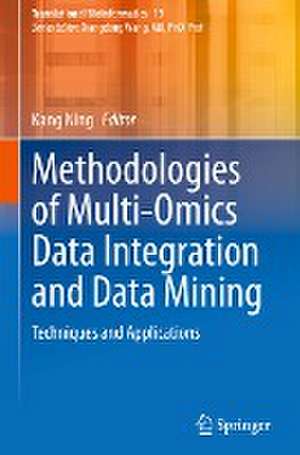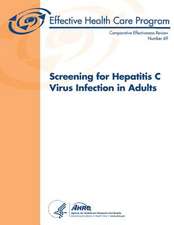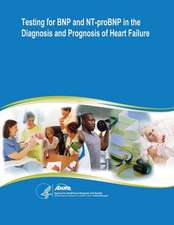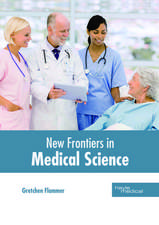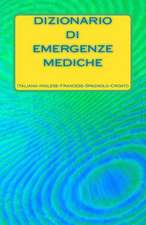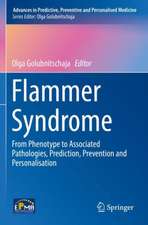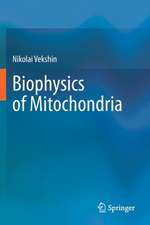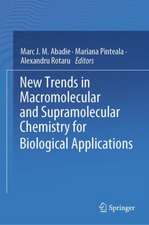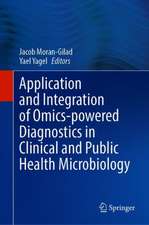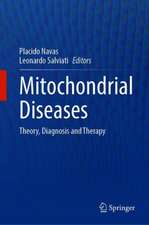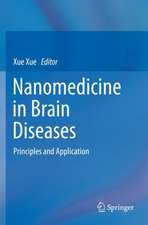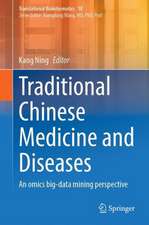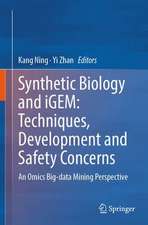Methodologies of Multi-Omics Data Integration and Data Mining: Techniques and Applications: Translational Bioinformatics, cartea 19
Editat de Kang Ningen Limba Engleză Hardback – 16 ian 2023
| Toate formatele și edițiile | Preț | Express |
|---|---|---|
| Paperback (1) | 1277.15 lei 6-8 săpt. | |
| Springer Nature Singapore – 16 ian 2024 | 1277.15 lei 6-8 săpt. | |
| Hardback (1) | 1284.08 lei 6-8 săpt. | |
| Springer Nature Singapore – 16 ian 2023 | 1284.08 lei 6-8 săpt. |
Din seria Translational Bioinformatics
- 5%
 Preț: 1114.71 lei
Preț: 1114.71 lei - 5%
 Preț: 657.05 lei
Preț: 657.05 lei - 5%
 Preț: 718.65 lei
Preț: 718.65 lei - 5%
 Preț: 1108.51 lei
Preț: 1108.51 lei - 5%
 Preț: 704.05 lei
Preț: 704.05 lei - 15%
 Preț: 644.30 lei
Preț: 644.30 lei - 5%
 Preț: 1097.54 lei
Preț: 1097.54 lei - 5%
 Preț: 1146.16 lei
Preț: 1146.16 lei - 20%
 Preț: 618.65 lei
Preț: 618.65 lei - 5%
 Preț: 707.86 lei
Preț: 707.86 lei - 5%
 Preț: 1277.15 lei
Preț: 1277.15 lei - 20%
 Preț: 1277.06 lei
Preț: 1277.06 lei - 20%
 Preț: 648.44 lei
Preț: 648.44 lei - 5%
 Preț: 717.00 lei
Preț: 717.00 lei - 20%
 Preț: 651.57 lei
Preț: 651.57 lei - 20%
 Preț: 648.11 lei
Preț: 648.11 lei - 5%
 Preț: 678.70 lei
Preț: 678.70 lei - 20%
 Preț: 640.51 lei
Preț: 640.51 lei
Preț: 1284.08 lei
Preț vechi: 1351.65 lei
-5% Nou
Puncte Express: 1926
Preț estimativ în valută:
245.74€ • 266.84$ • 206.42£
245.74€ • 266.84$ • 206.42£
Carte tipărită la comandă
Livrare economică 23 aprilie-07 mai
Preluare comenzi: 021 569.72.76
Specificații
ISBN-13: 9789811982095
ISBN-10: 9811982090
Pagini: 167
Ilustrații: XI, 167 p. 1 illus.
Dimensiuni: 155 x 235 mm
Greutate: 0.43 kg
Ediția:1st ed. 2023
Editura: Springer Nature Singapore
Colecția Springer
Seria Translational Bioinformatics
Locul publicării:Singapore, Singapore
ISBN-10: 9811982090
Pagini: 167
Ilustrații: XI, 167 p. 1 illus.
Dimensiuni: 155 x 235 mm
Greutate: 0.43 kg
Ediția:1st ed. 2023
Editura: Springer Nature Singapore
Colecția Springer
Seria Translational Bioinformatics
Locul publicării:Singapore, Singapore
Cuprins
Chapter 1. Introduction to multi-omics.- Part 1. Omics integration techniques.- Chapter 2. Biomedical applications: the need for multi-omics.- Chapter 3. Omics technologies and big data.- Chapter 4. Multi-omics data mining techniques: algorithms and software.- Part 2. Applications of multi-omics analyses.- Chapter 5. Multi-omics data analysis for cancer research: colorectal cancer, liver cancer and lung cancer.- Chapter 6. Multi-omics data analysis for inflammation disease research: correlation analysis, causal analysis and network analysis.- Chapter 7. Microbiome data analysis and interpretation: correlation inferences and dynamic pattern discovery.- Chapter 8. Current progress of bioinformatics for human health.
Notă biografică
Kang Ning, Professor, PI of Microbial Bioinformatics Group, Director of Department of Bioinformatics and Systems Biology, School of Life Science and Technology, Huazhong University of Science and Technology. He obtained his BS in Computer Science from USTC and PhD in Bioinformatics from NUS. He has had his Post-Doc training in Bioinformatics from University of Michigan. Dr. Ning has more than 20 years of experiences in bioinformatics for omics big-data integration, mirobiome analyses and single-cell analyses. His current research interests include AI method for multi-omics especially metagenomics data mining, as well as their applications. He is also interested in synthetic biology and high-performance-computation. Dr. Ning is the leading or corresponding author of over 100 papers and reviews on leading journals including PNAS, Gut, Annals of the Rheumatic Diseases, Genome Biology, Genome Medicine, Microbiome, Briefings in Bioinformatics, Bioinformatics, Nucleic Acids Research,which have more than 5,000 citations. He has been the committee members of several national bioinformatics and biology big-data committees in China, such as the deputy director of Genomic Informatics Branch of China Bioinformatics Society. He is also the distinguished member of China Computer Federation. He serves as an editorial board member of several journals inlcuding Genomics Proteomics and Bioinformatics, Microbiology Spectrum, iMeta and Scientific Reports, and served as reviewers for several international funding agencies including UK-BBSRC and UK-NERC. He has collaborations with biologists, doctors and statisticians in many countries, and has given talks on international conferences for many times.
Textul de pe ultima copertă
This book features multi-omics big-data integration and data-mining techniques. In the omics age, paramount of multi-omics data from various sources is the new challenge we are facing, but it also provides clues for several biomedical or clinical applications. This book focuses on data integration and data mining methods for multi-omics research, which explains in detail and with supportive examples the “What”, “Why” and “How” of the topic. The contents are organized into eight chapters, out of which one is for the introduction, followed by four chapters dedicated for omics integration techniques focusing on several omics data resources and data-mining methods, and three chapters dedicated for applications of multi-omics analyses with application being demonstrated by several data mining methods. This book is an attempt to bridge the gap between the biomedical multi-omics big data and the data-mining techniques for the best practice of contemporary bioinformatics and the in-depth insights for the biomedical questions. It would be of interests for the researchers and practitioners who want to conduct the multi-omics studies in cancer, inflammation disease, and microbiome researches.
Caracteristici
Features multi-omics big-data integration and data-mining techniques Provides in detail and with supportive examples the “What”, “Why” and “How” of the topic Shed light on a data-driven and better understanding of in cancer, inflammation disease, and microbiome researches
